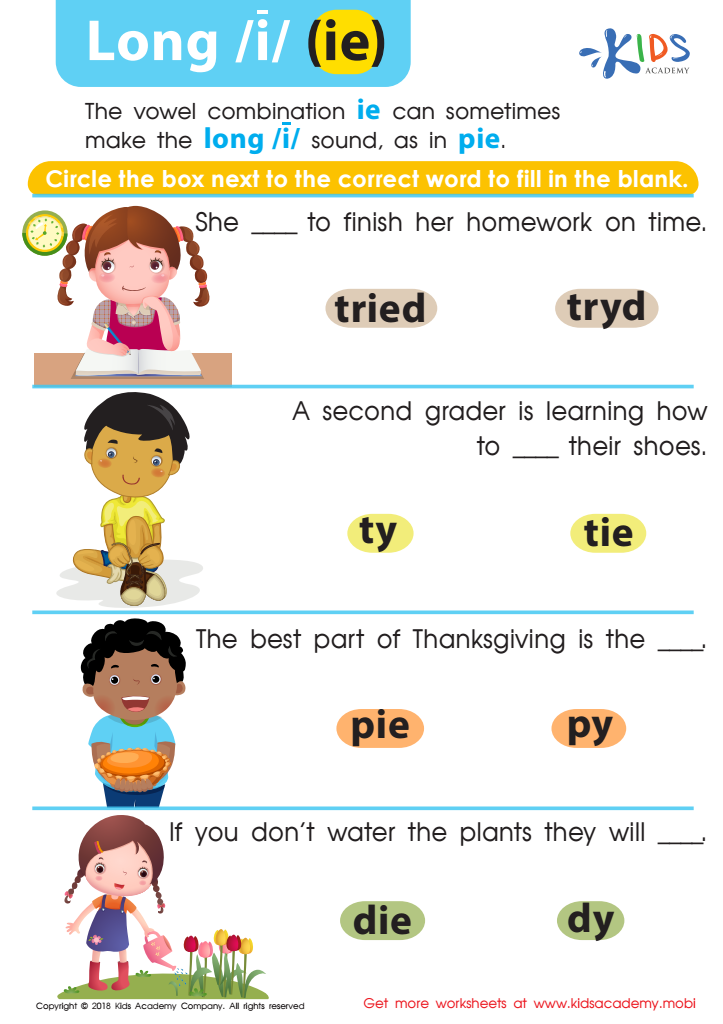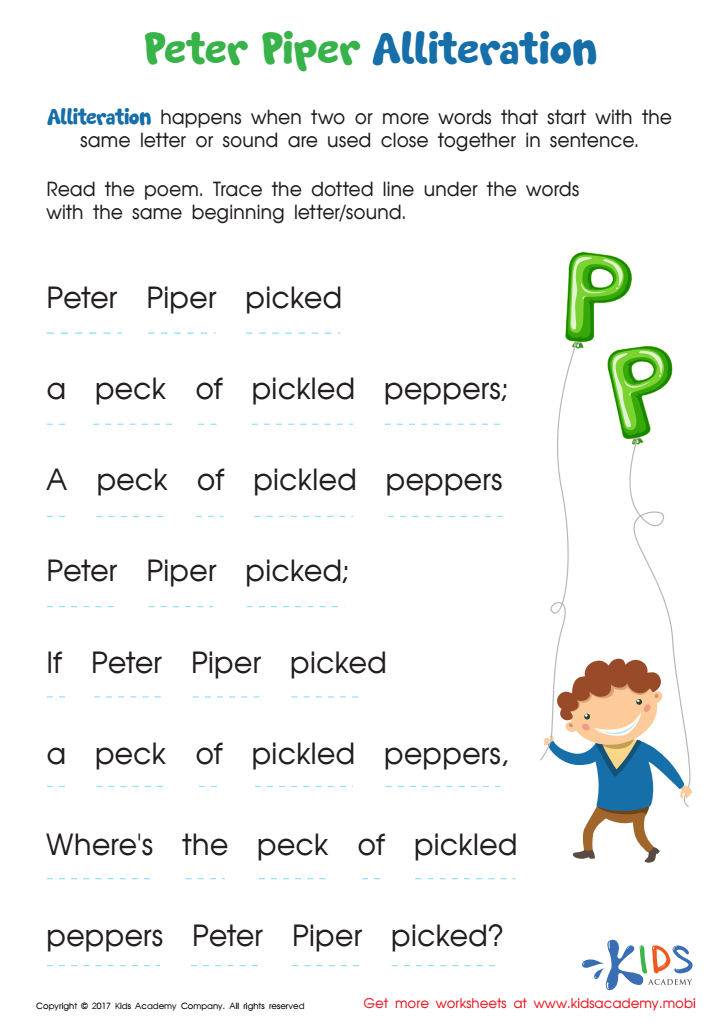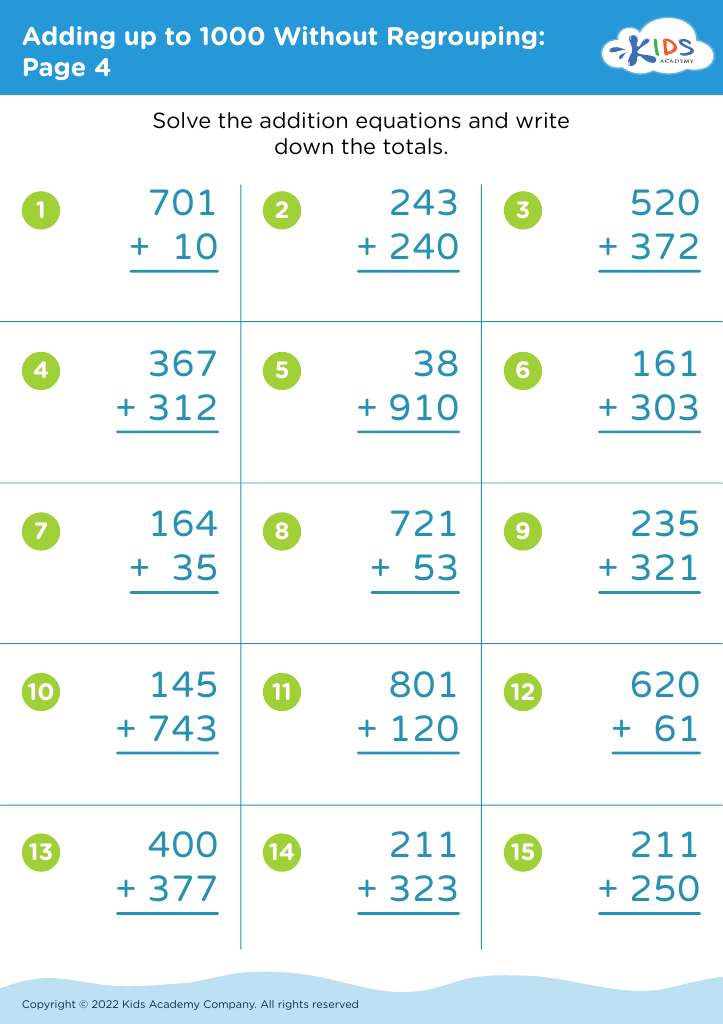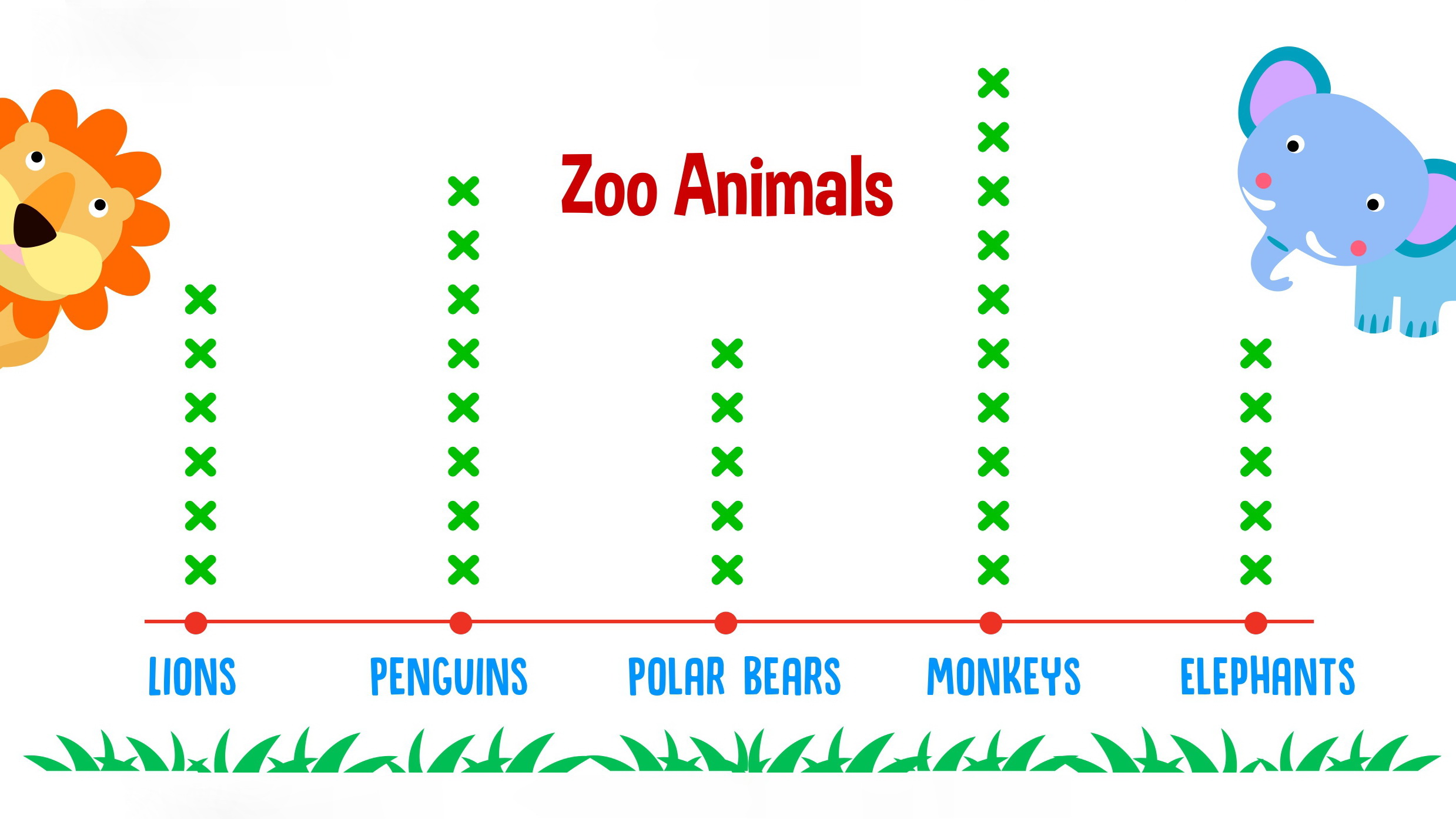Pronunciation practice Worksheets for Kids
3 filtered results
-
From - To


Reading: Long I and IE Worksheet


Peter Piper Alliteration Worksheet
Question/Answer
What are some effective activities to train students’ Pronunciation practice skill when teaching them about Adding up to 1000 Without Regrouping?
For pronunciation practice in the context of math, particularly adding up to 1000 without regrouping, activities could include: 1. **Choral Reading of Problems:** Students read math problems aloud together, focusing on correct pronunciation. 2. **Math Vocabulary Drills:** Practice saying key math terms and numbers. 3.
How to test a Grade 2 student’s Pronunciation practice skills?
To test a Grade 2 student's pronunciation practice skills, use a curated list of grade-appropriate words and short sentences. Have the student read them aloud, then assess clarity, accuracy, and fluency. Listen for correct vowel and consonant sounds, stress on the right syllables, and smooth word transitions. Offer immediate, gentle feedback to guide improvements.
How to train the Pronunciation practice skill in Grade 2 students learning about Adding up to 1000 Without Regrouping?
To train pronunciation in Grade 2 students while learning Adding up to 1000 Without Regrouping, incorporate reading numbers aloud exercises, use number rhymes, and engage in collaborative group tasks where students read and explain their mathematical processes to peers. Incorporate frequent, short pronunciation drills focused on number vocabulary to build confidence and accuracy.
 Assign to the classroom
Assign to the classroom



.jpg)









